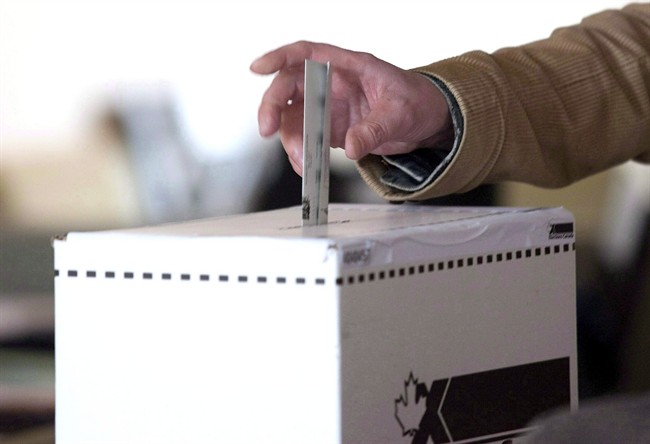Political parties are not allowed to sell the information they get on voters from Elections Canada.

But if they did, the nominee for Chief Electoral Officer said, officials would have no way of knowing whether they broke the rules.
In his first appearance before the House of Commons Procedure and House Affairs committee, Stephane Perrault said NDP MP Nathan Cullen was “correct” when Cullen said that it seemed Elections Canada was “blind” to potential violations of voter data protection rules by political parties.
READ MORE: Liberals open to adding sharper teeth to privacy policy rules experts call ‘a joke’
As it stands now, political parties are not subject to any of the privacy rules laid out for private sector businesses under the Personal Information Protection and Electronic Documents Act (PIPEDA).
They collect vast amounts of information on Canadians through everything from doorknocking campaigns to newsletter subscriptions and engagements with voters and legally, they can sell any of it.
What they cannot legally sell, however, is information obtained from the Elections Canada voter registry, which includes voter names and addresses.
But some of the information from the voter registry could also be collected by other means and if parties decide to sell it, Perrault says there would be no way to tell whether it was sold illegally from the voter list or legally from other means.
WATCH BELOW: Canada’s privacy laws must cover political parties, former privacy commissioner says

“That’s the issue. It’s all put into a database that includes various sources,” said Perrault.
“It’s impossible to tell whether the name or address of a person comes from Elections Canada or another source.”

Get breaking National news
All the major political parties have their own privacy policies regarding how they use information gathered from voters.
READ MORE: Political parties should not police themselves on voter data, privacy commissioner says
The Liberal, Conservative and Green Party policies state they do not sell the personal information they collect; the NDP policy does not.
However, a party spokesperson has told Global News the NDP does not sell voter information and is in the process of updating its policy.
The question raised by current and former privacy commissioners in recent weeks though is whether it should be legal at all for parties to be able to sell information if they wanted to and why no third party has oversight to make sure parties actually protect voter privacy.
On April 30, Acting Democratic Institutions Minister Scott Brison tabled C-76, the Elections Modernization Act.
That bill, currently being debated in the House of Commons, would make it a requirement for political parties to publish privacy policies.
WATCH BELOW: How Facebook data made psychological profiles

Among the criteria that the bill requires the parties to address in those policies is under what circumstances they might sell or share personal information.
It does not contain any mechanism to make sure that the parties actually follow the rules they set for themselves.
Perrault said his predecessors have been clear that letting political parties remain exempt from privacy laws should be a thing of the past.
“We’ve recommended in the past and continue to believe they should be required to comply with basic privacy rules,” he said.
WATCH BELOW: Canada’s privacy commissioner investigating Facebook data breach

Perrault also suggested the privacy commissioner might be best placed to make sure the parties follow any such rules — and said enshrining the requirement for parties to protect voter information should be enshrined in law, not just party policies.
“I think it should be in law. I think they do need to be required to do that. There does need to be some oversight.”
C-76 is currently being debated in the House of Commons but the Liberals have given notice they intend to impose time allocation on the legislation.
That would result in debate being cut short to move the bill to committee more quickly.
Once at committee, MPs will have the chance to propose amendments to the legislation but while Prime Minister Justin Trudeau has said the government is open to considering changes to the bill, it is facing a time crunch to get it passed in time to let elections officials implement its changes in time for the next election in October 2019.
Parliament is also set to rise for the summer in four weeks.
That means progress on the bill will stall until the House of Commons and Senate resume in September.
- ‘Something just went off’: Canadians in Middle East describe ‘surreal’ Iran missile strikes
- Queen’s University students stranded in Doha after Iran attack shuts down airspace
- Iran begins search for new leader; U.S. military says 3 service members killed
- Khamenei’s death met with ‘jubilation’ among Iranian-Canadians: Liberal MP








Comments
Want to discuss? Please read our Commenting Policy first.